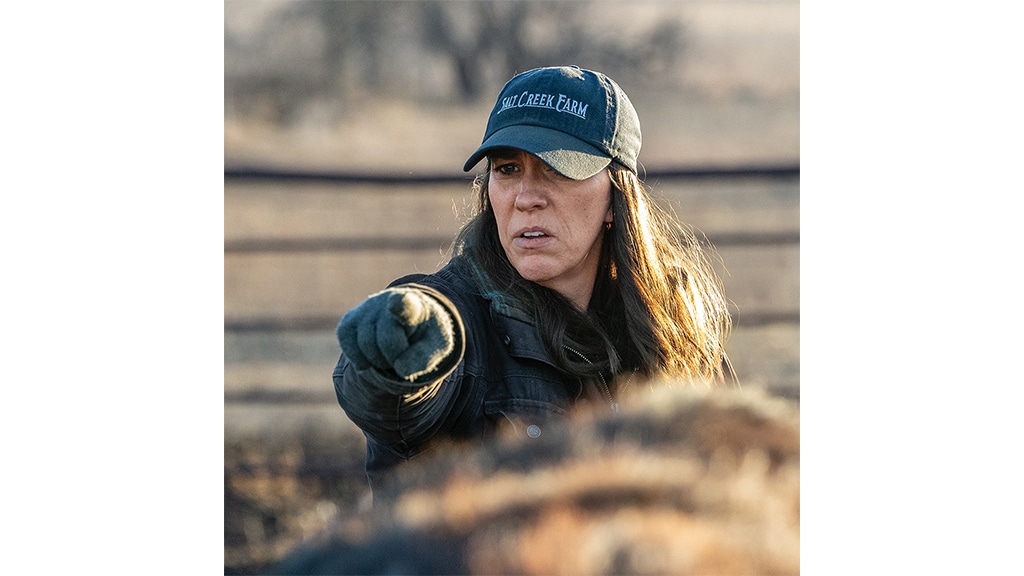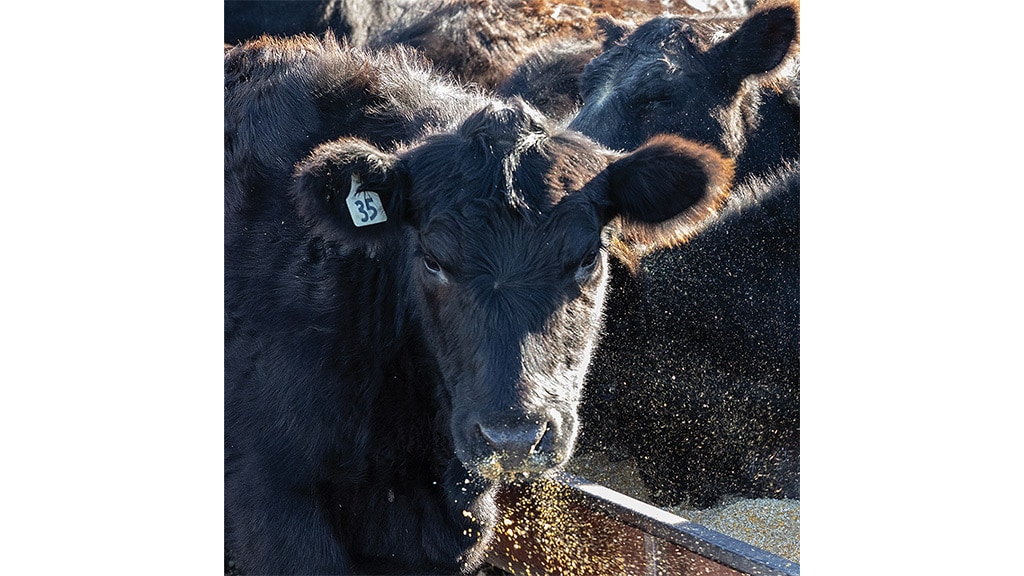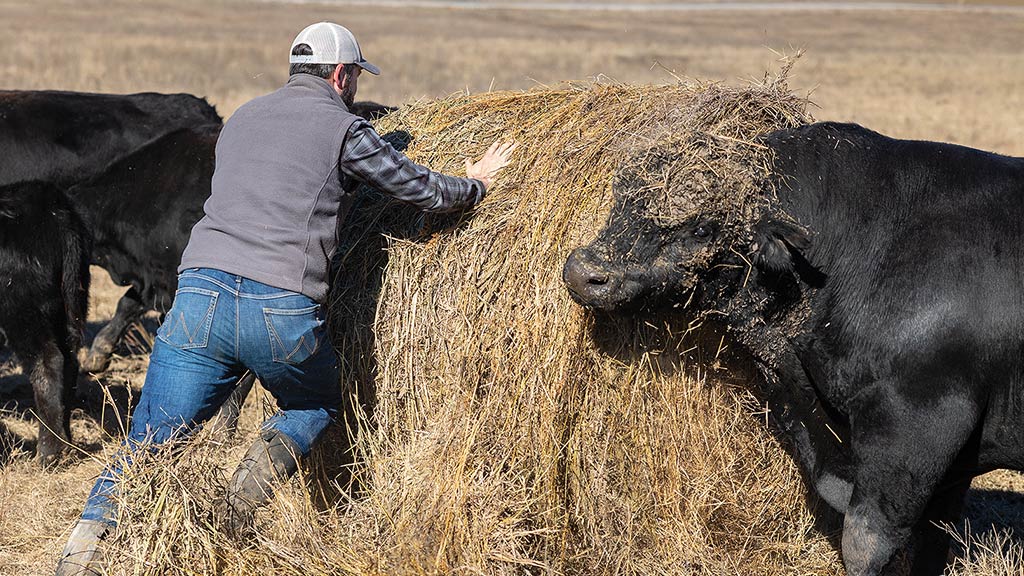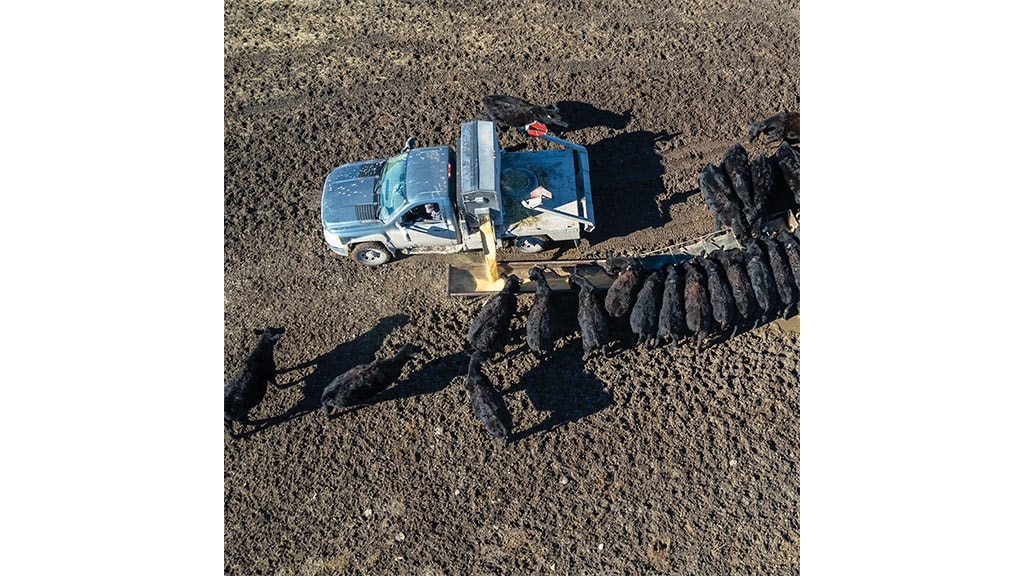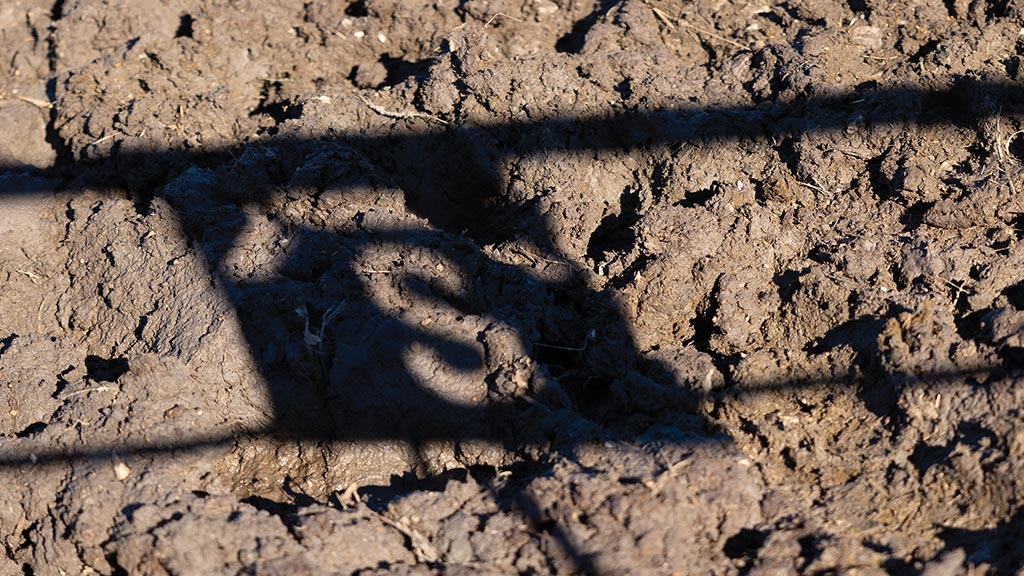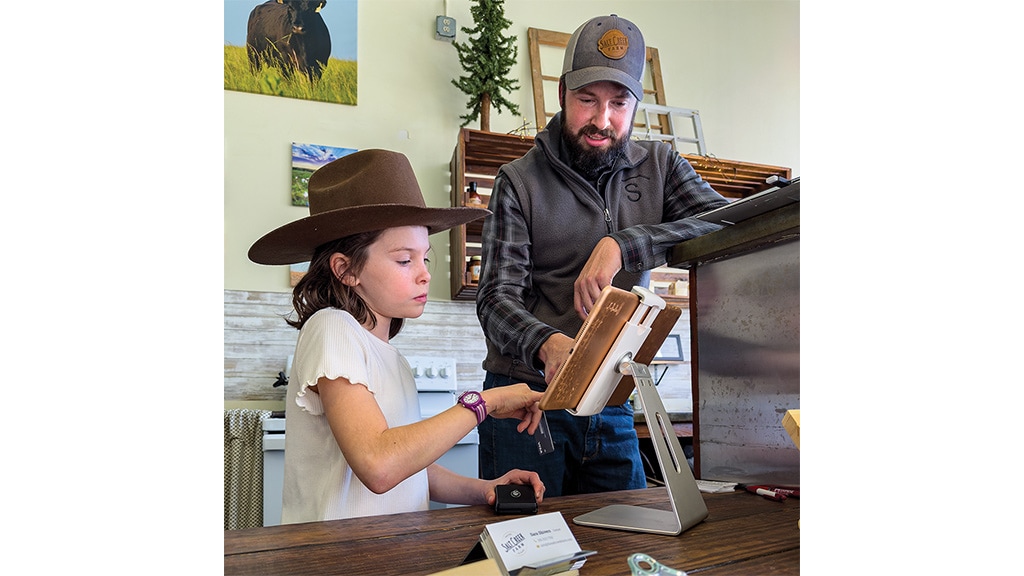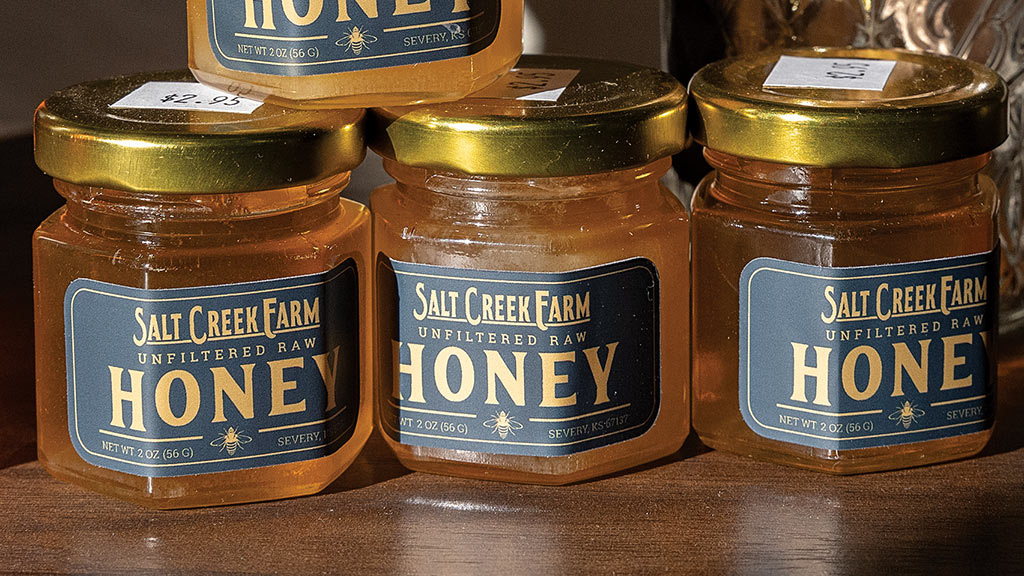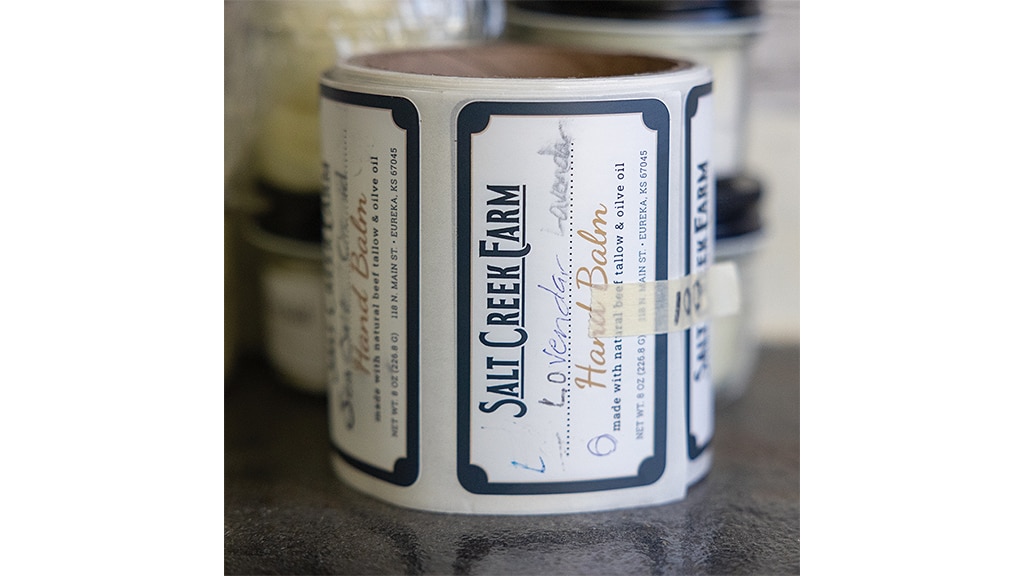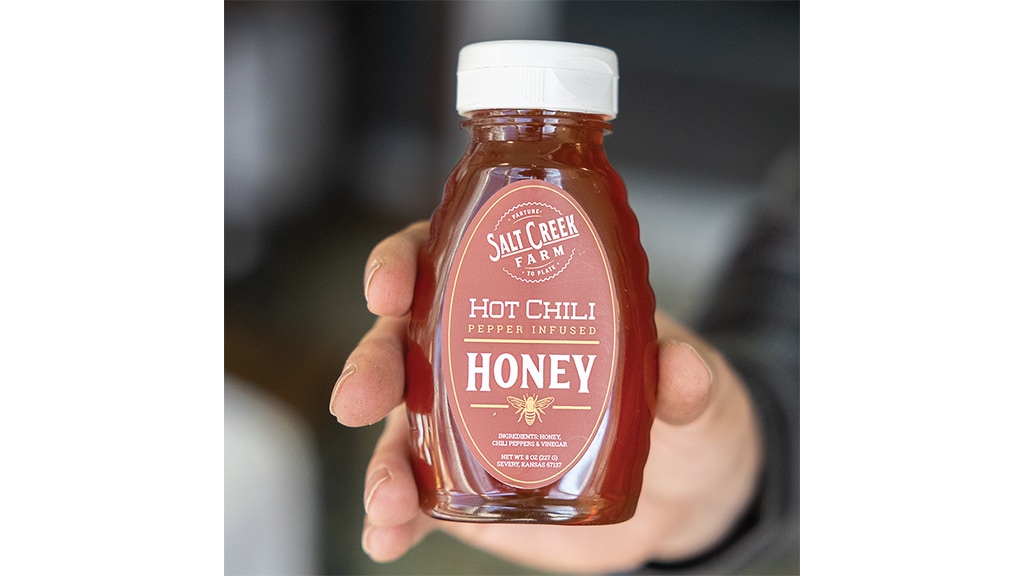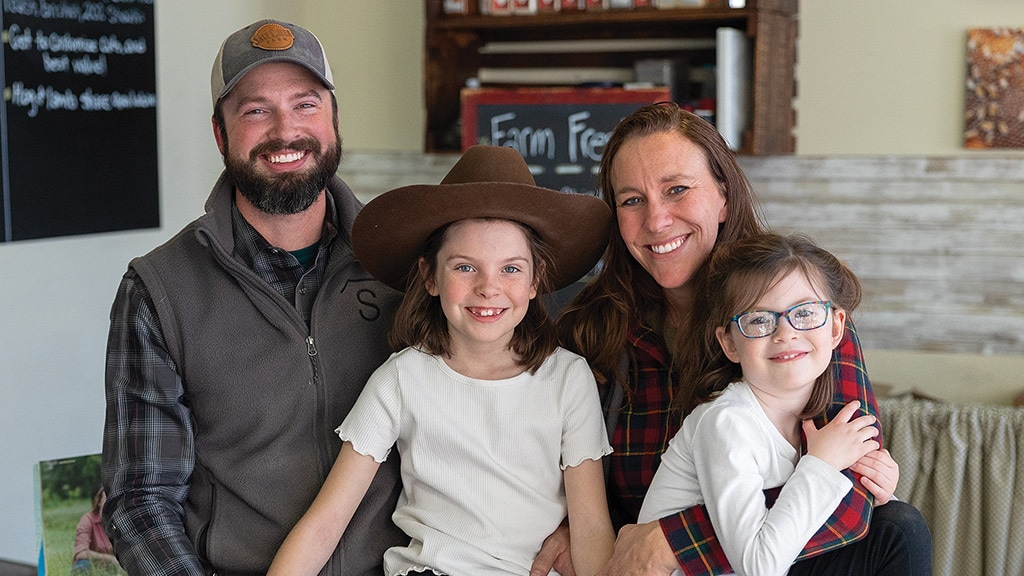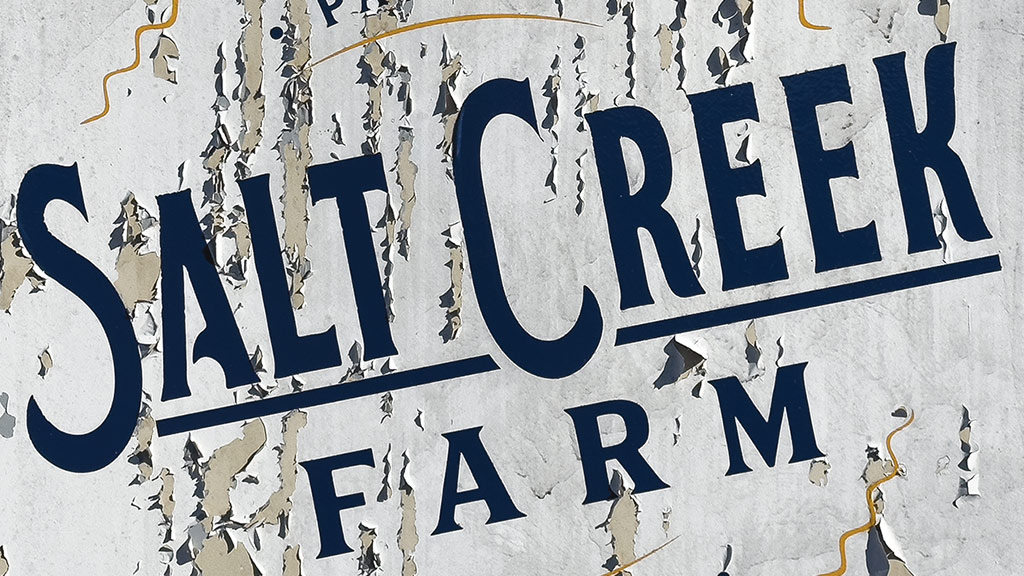
From the Tallgrass Prairie in Greenwood County, Kansas, Sara Shivers keeps tabs on Salt Creek Farm, a “pasture-to-plate” business she operates with her husband, Jay, that adds value to high-quality beef they raise.
Agriculture, Livestock/Poultry June 01, 2024
More than Food
From farm to table, this ranch family is improving lives along the way.
by Bill Spiegel
Guests who choose a ribeye dinner at Rye Leawood will soon enjoy a culinary event like no other. The entree is rich, balanced, and melt-in-your-mouth tender, an experience that Sara and Jay Shivers delight in sharing.
The Shivers are founders of Salt Creek Farm, a pasture-to-plate ranch in Greenwood County, Kansas, that strives to produce the best beef in the business. They do so by paying meticulous attention to detail, from the beef genetics they use, to precise feed rations and even how the butcher shop trims each cut.
Chefs at some of Kansas City's most prestigious restaurants take notice of their effort.
"I wanted to find a source for beef that was different than what other restaurants were carrying but also the highest quality," says Ryan Williams, executive chef at Rye Leawood. "Customers love whenever we can use products from close by, as long as the quality is there. The flavor is great."
Rave reviews are the result of years of hard work.
Salt Creek Farm is the marketing extension of Rafter S Ranch, established in 1975 by Sara's parents, Don and Jan Stephens, near Severy, Kansas.
Don grew up about 15 miles south of the ranch he and Jan established. A county Extension agent when he and Jan married, his dream was to start a cow herd. Clint, their firstborn, didn't take to the ranch like Sara did. She and her father were inseparable.
"They had similar personalities, and enjoyed each other's company," recalls Sara's mother, Jan.
The ranch life was tough, and Sara's parents urged her to pursue a different career. After college she moved to Texas, which is where she met and married Jay, an urban kid who soon shared Sara's dreams about building something special in Kansas.
Jay, a city planner by training, accepted a job in El Dorado, Kansas, in 2014, about 45 miles from the ranch. The couple moved there not long after their oldest daughter, Stella, was born. While Sara ranched alongside her dad, Jay worked in town, leaving early last year to help Sara build the Salt Creek Farm business.
In April, Don died suddenly. His passing rocked the family and left a hole in their collective hearts. Sara's mentor was gone.
"But he prepared me for this," she shared on Instagram.
Jan noted Sara's resilience.
"When she came back, she really felt like this was where she was meant to be, this is where she wanted to be, and it was a commitment," Jan says. "That has driven her."
Above. Sara Shivers quickly sorts cattle in a pen. Cattle are raised on grass, but receive grain the last few months to improve marbling. An equipment malfunction forces Jay Shivers to unroll a hay bale by hand. A grain-based ration is fed to cattle. Sara's parents Don and Jan Stephens started Rafter S Ranch in the 1970s. Stella Shivers helps her dad ring up a customer at the Salt Creek Farm store. The brick-and-mortar business offers products from a variety of local businesses.
Adding value. Rafter S cows produced great calves, but they weren't earning the premiums Don Stephens thought they should get.
"When we first moved back home, Dad told me two things. One, if you want to try something, I will never tell you no," she recalls. "And second, we need to find a better way to market our beef."
To the last point, Don meant building a reputation with sale barns and feedlots. Sara and Jay, however, took a different approach: selling direct to consumers and restaurants.
The Shivers were beginning to see the local food movement when they lived in Texas and believed their high-quality, dry-aged beef quarters, halves, and wholes would sell themselves.
"When we started, we thought it would be easy," Sara says.
But it wasn't.
"We struggled at first," she admits. Fortuitously, a family member planned to open a brewery in Kansas City, and wanted local beef to serve in the accompanying restaurant.
"That helped us get our foot in the door and learn the wholesale side of selling direct to restaurants," she adds.
Sara worked tirelessly to build up Salt Creek's restaurant business, and now regularly provides high-quality beef to roughly 15 eateries in Kansas City, Wichita, and Emporia, Kansas.
The Shivers dealt with plenty of growing pains.
"People don't always see how many years you've put into trying, or all the stumbles we've had or the things that didn't work," Jay says. "We didn't start at 25 restaurants, we started at one, then two, and then some more," he adds. "It took years."
Restaurants have specific needs when it comes to the way beef is cut. Salt Creek credits Bronson Locker with meeting the exact standards chefs require and the Shivers demand.
"Just as with any business, relationships make or break a deal," Sara says. "They treat us really well and do a fantastic job."
By March 2020, restaurants comprised about 95% of Salt Creek's business. Then, COVID hit. As the pandemic forced people to stay home, restaurants began canceling meat orders. Salt Creek Farm had built a website and e-commerce store by then; when grocery stores were running out of meat, the Shivers were prepared for the huge demand for online ordering and mail delivery of meat.
"In the end, that worked for us because it helped us diversify. Rather than just selling wholesale, we were delivering to consumers in Wichita and Kansas City plus shipping nationwide," she says.
Beef remains the primary sector of its business, but they partner with another producer to sell Salt Creek Farm lamb. One objective is to work with like-minded producers to meet growing demand for consistent supplies of high-quality beef.
The market. The Shivers never planned to open a brick-and-mortar store, but the chance to rent space in downtown Eureka, Kansas, was too good to pass up.
The space serves as a showcase for locally-sourced products, including Salt Creek Farm meats, cheese from a local dairy, and coffee cups from a nearby potter, and much more. Guests can buy Salt Creek Farm honey products, gleaned from Jay's beekeeping.
Providing opportunity to those merchants is one of Sara's goals.
The market also has a commercially licensed kitchen, where Sara prepares take-and-bake entrees. They pack boxes of beef for mail order delivery, and Sara spends at least a day per week in the store. Plus, customers love meeting the ranchers.
"Having a storefront gave us value other than monetary, because we now have a face," Jay explains. It has helped them in all facets of sales, he adds. So what's next?
The Shivers dream of a bigger building to support more retail space, plus a larger commercial kitchen in which to prepare more take-and-bake meals. They aim to expand the subscription model, adding to their line of beef stick flavors and summer sausage, plus the farm's honey products.
Driving growth with new products and services, they reckon, will also provide good-paying jobs that help keep their community vibrant.
Above. Jay Shivers started beekeeping a few years ago; his products are featured at the Salt Creek Farm store in Eureka, Kansas. Labels for the Salt Creek beef-tallow based hand balm, await placement. Jay says the store’s hot honey is one of his favorite new products.
The Shivers family include Jay, Stella, Sara, and Margot. This creed is something the family adheres to every day. The farm-to-table business is named for a local creek that feeds into the Fall River.
Selling the story. Regular social media posts have helped Salt Creek Farm teach consumers about life on a ranch with daughters, Stella (9) and Margot (6). Their audience has watched the girls grow and become dedicated ranchers themselves.
Moreover, social media is a teaching tool. Followers have learned about cow health, the magic of tallgrass prairies, and how honey is made.
"They may not know what dry aging is or how we finish our cattle or that all animals are grass fed. It's been interesting to educate them," Jay says.
Yet Sara is not afraid to share the grim reality of ranch life: last summer, she posted photos of dry ponds and a video of hauling water during the area's worst drought in 75 years.
Sharing snippets of ranch life through social media has also helped build the Salt Creek Farm brand, plus cement the couple's reputation as stewards of the land.
"I love talking with chefs. I love building relationships with my customers," Sara says. "I just love selling beef in general.
"But being able to sell you a steak that you love, and then you telling your friends about it—that's what I find passion in," she explains.
The legacy. Although Sara and Jay's marketing model was unique to the ranching business Don Stephens did so well, he would delight in their success, according to Jan.
"The in-house joke is that when Sara comes up with a new idea, we could judge how unique it was by how high her dad's eyebrows were raised," she says. "He would be very proud of her." ‡
Read More

AGRICULTURE, AG TECH
A View from Above
The stars align for satellites to open a world of opportunity.

AGRICULTURE, SPECIALTY/NICHE
Floating Harvest
Following the call to wild rice.

